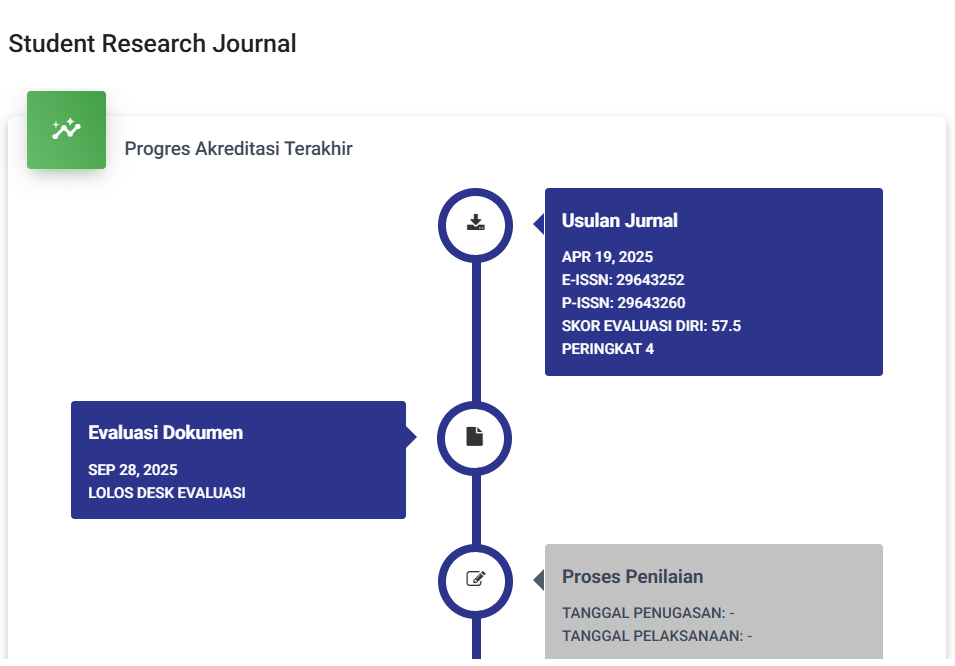Alat Kebijakan dalam Sistem Pendidikan Sebagai Pilar untuk Kemajuan Pendidikan Nasional
DOI:
https://doi.org/10.55606/srj-yappi.v2i6.1636Keywords:
policy tools, education system, regulations, economic instruments, digitalization of educationAbstract
Policy tools have an important role in shaping a quality, inclusive, and sustainable education system. This article aims to identify and analyze the various policy tools used in the education system, including regulations, economic instruments, and information instruments. Using an analytical-descriptive approach, this article explores how policy tools are applied to support the achievement of national education goals, such as improving access, quality, and equity in education. The findings show that the success of policy tools is greatly influenced by the effectiveness of implementation, the capacity of human resources, and synergies between various stakeholders. However, challenges such as access gaps in remote areas, technological limitations, and lack of transparency in policy management remain obstacles. To overcome these challenges, it is recommended that strategies in the form of strengthening human resource capacity, digitization of the education system, as well as increased collaboration between the government, the private sector, and the community. With the implementation of effective policy tools, the education system can become the main pillar in advancing the nation and creating a globally competitive generation.
References
ahyono, E. A., Sutomo, N., & Hartono, A. (2019). Literatur review: Panduan penulisan dan penyusunan. Jurnal Keperawatan, 12(2), 12.
Dunn, W. N. (2003). Pengantar analisis kebijakan publik. Jogjakarta: Gajah Mada University Press.
Fadhila, N., & Riani, L. P. (2024). Menelisik problematika pembiayaan pendidikan di Indonesia: Sebuah tinjauan literatur.
Gaffar, A. (1997). Publik policy: State of the discipline, model and proses. Yogyakarta: Pasca Sarjana Universitas Gajah Mada.
Hendrawati, T., Hayadi, B. H., Yusuf, F. A., Yustiva, F., & Masqurah, H. (2024). Kebijakan dan strategi pendidikan dalam meningkatkan mutu pendidikan. Technical and Vocational Education International Journal, 4(1), 1439–1448.
Mayasari, I., Rahmania, T., Cempaka, G., Subagjo, A., & Driarkoro, R. (2022). Monitoring dan evaluasi program Merdeka Belajar Kampus Merdeka sebagai peningkatan kualitas pendidikan di tingkat fakultas: Studi pada Universitas Paramadina. Jurnal Manajemen Dan Bisnis Madani, 4(1).
Rohani, I. (2020). Kajian kebijakan pendidikan dalam Undang-Undang Sistem Pendidikan Nasional. Tarbawi Ngabar: Jurnal of Education, 1(1), 80–99. https://doi.org/10.55380/tarbawi.v1i01.33
Rozak, A. (2021). Kebijakan pendidikan Indonesia. Alim-Journal of Islamic Education, 3(2), 197–208.
Rusdiana. (2015). Kebijakan pendidikan (dari filosofi ke implementasi) (Cetakan 1). Pustaka Setia. http://digilib.uinsgd.ac.id/11509/1/Kebijakan Pendidikan.pdf
Sa’ud, U. (2002). Pengembangan kebijakan pendidikan dalam kerangka otonomi daerah. http://file.upi.edu/Direktori/FIP/JUR._ADMINISTRASI_PENDIDIKAN/195306121981031-UDIN_SYAEFUDIN_SA%27UD/Kebijakan_Pend.-Bapenas_2002.pdf
Sholeh, M. I. (2023). Strategi efektif dalam manajemen pendidikan untuk meningkatkan kualitas pembelajaran. Tarbawi Ngabar: Jurnal of Education, 4(2), 139–164. https://doi.org/10.55380/tarbawi.v4i2.462
Tsuraya, F. G., Rizkiani, S. T., & Kusumaningrum, H. (2024). Manajemen strategi dalam meningkatkan pendidikan yang kuat. Education Management, 2(1), 39–46.
Wahab, S. A. (2004). Pengantar studi analisis kebijakan negara. Jakarta: Rineka Cipta.
Wardani, A. W., Setiawan, F., Rifki, M., & Dinillah, N. N. (2022). Konsep dasar analisis kebijakan pendidikan. Universitas Ahmad Dahlan, 1(3), 91–93. https://journal.ipts.ac.id/index.php/ED/article/view/3833/2556 https://doi.org/10.37081/ed.v10i3.3833
Zuanda, S., Fahrezi, D. W., Rised, G. F., & Syaifuddin, M. (2024). Implementasi dan evaluasi kebijakan pendidikan. Jurnal Pendidikan Tambusai, 8(2), 27207–27218.
Downloads
Published
How to Cite
Issue
Section
License
Copyright (c) 2024 Lili Raflika, Salniati Nasution, Khalid Samahangga

This work is licensed under a Creative Commons Attribution-ShareAlike 4.0 International License.








